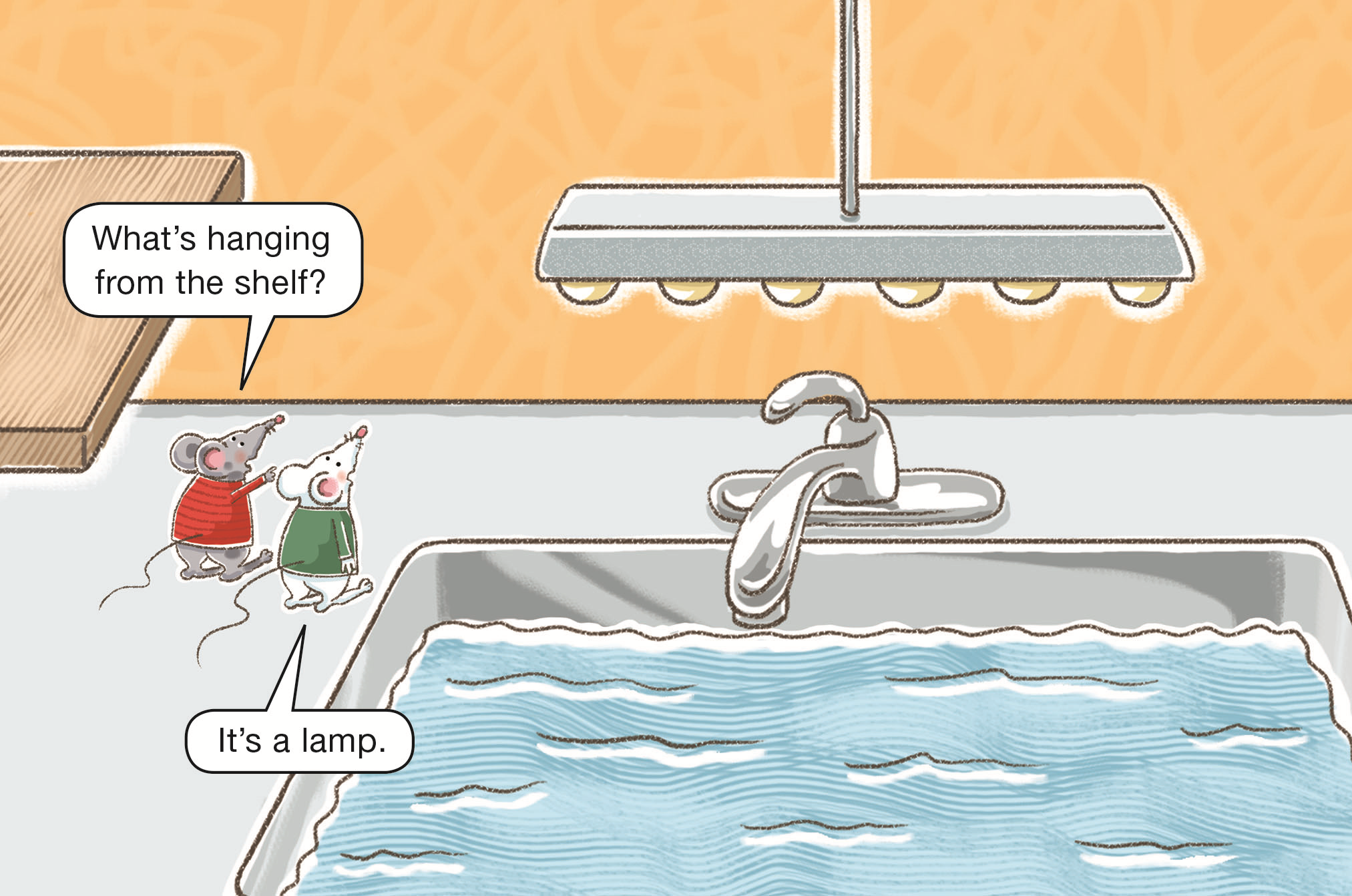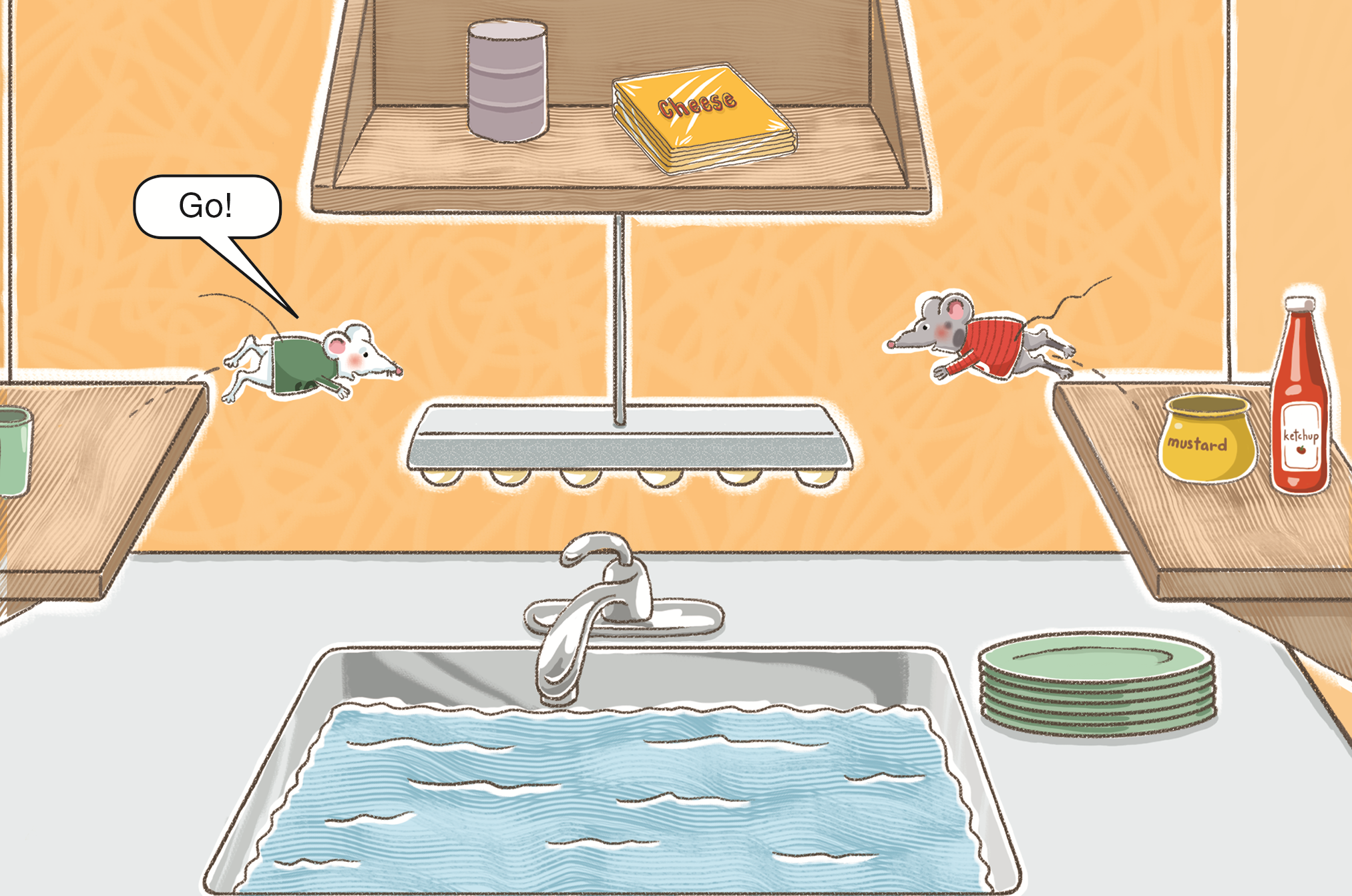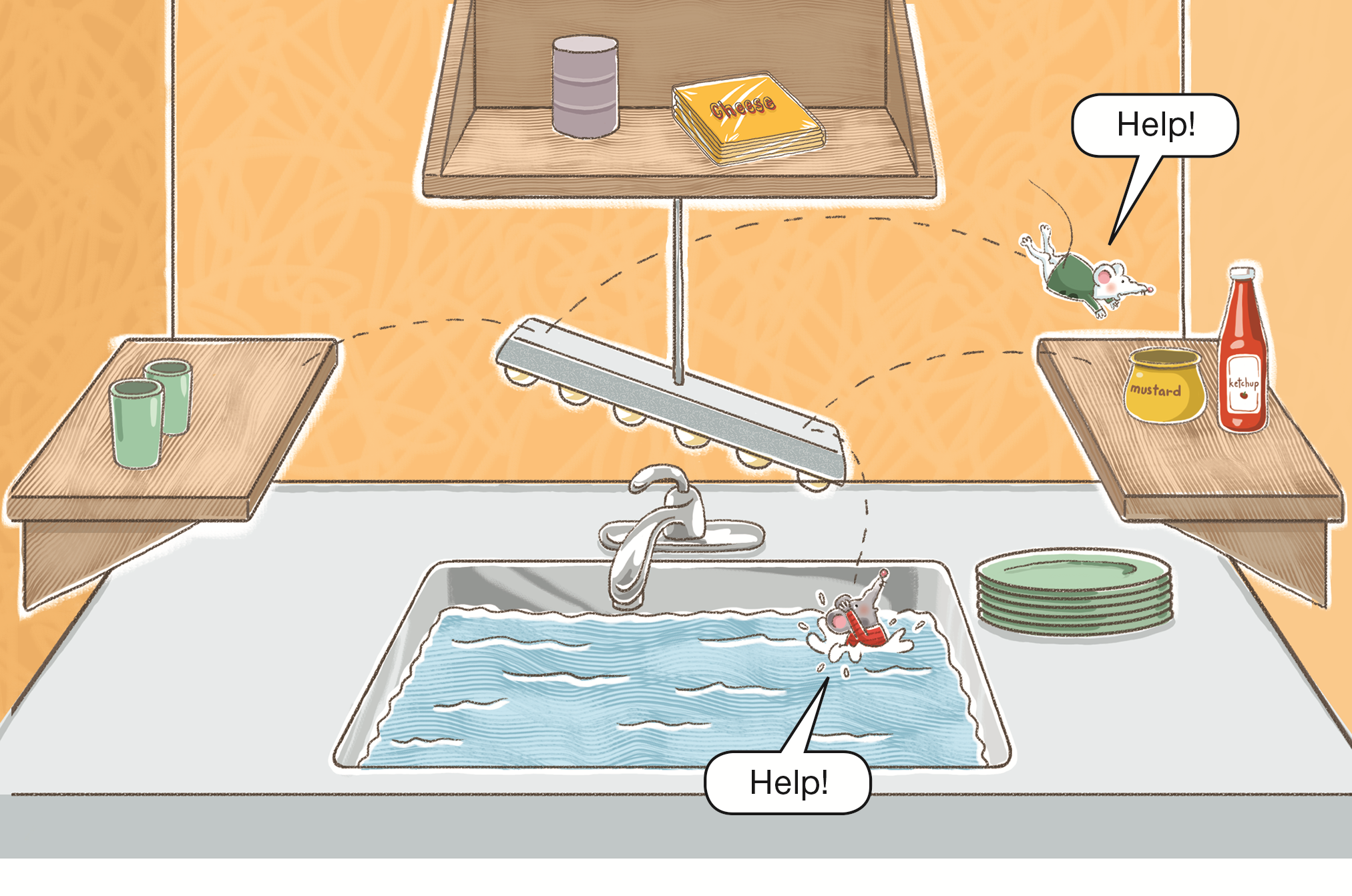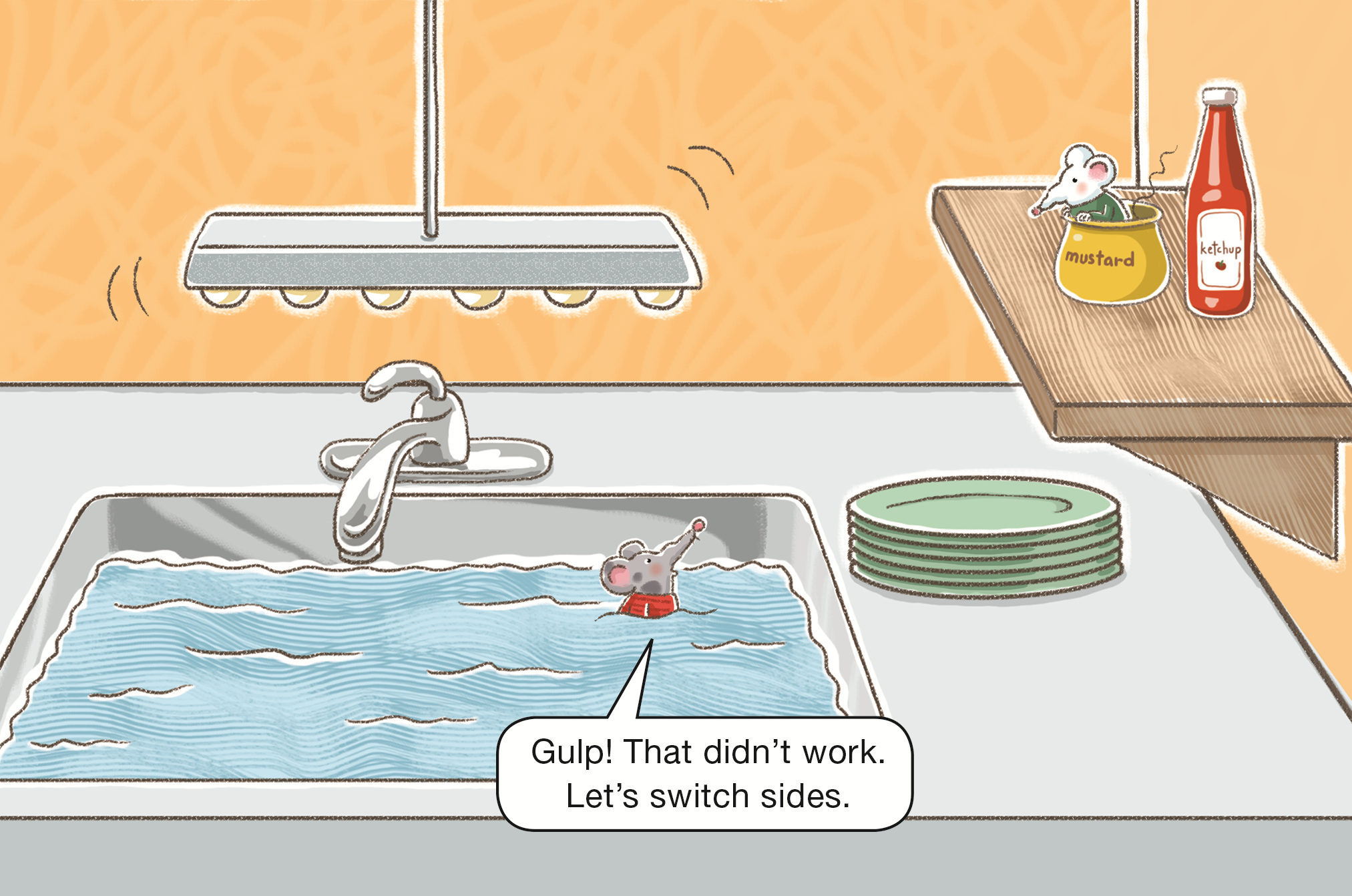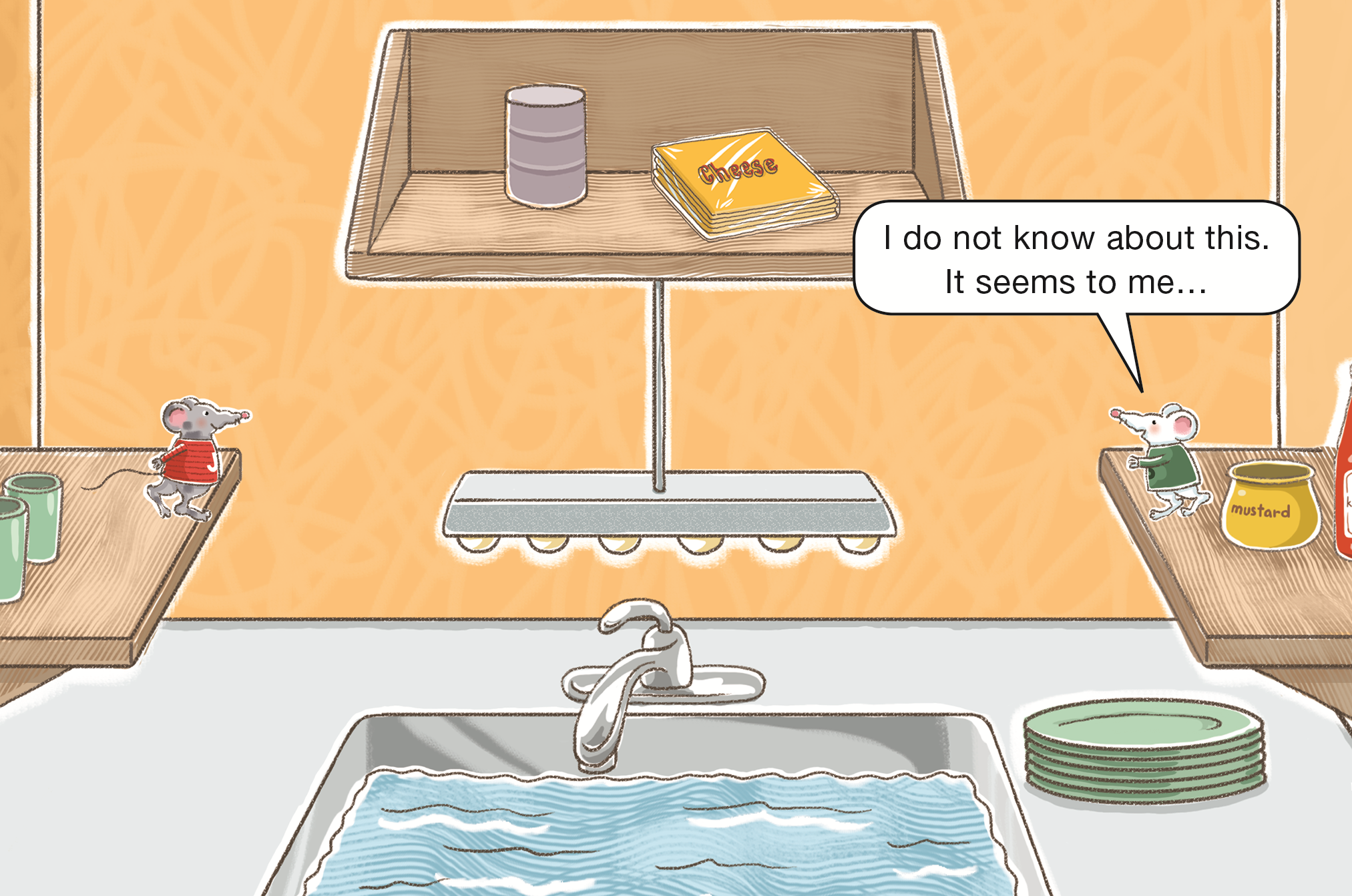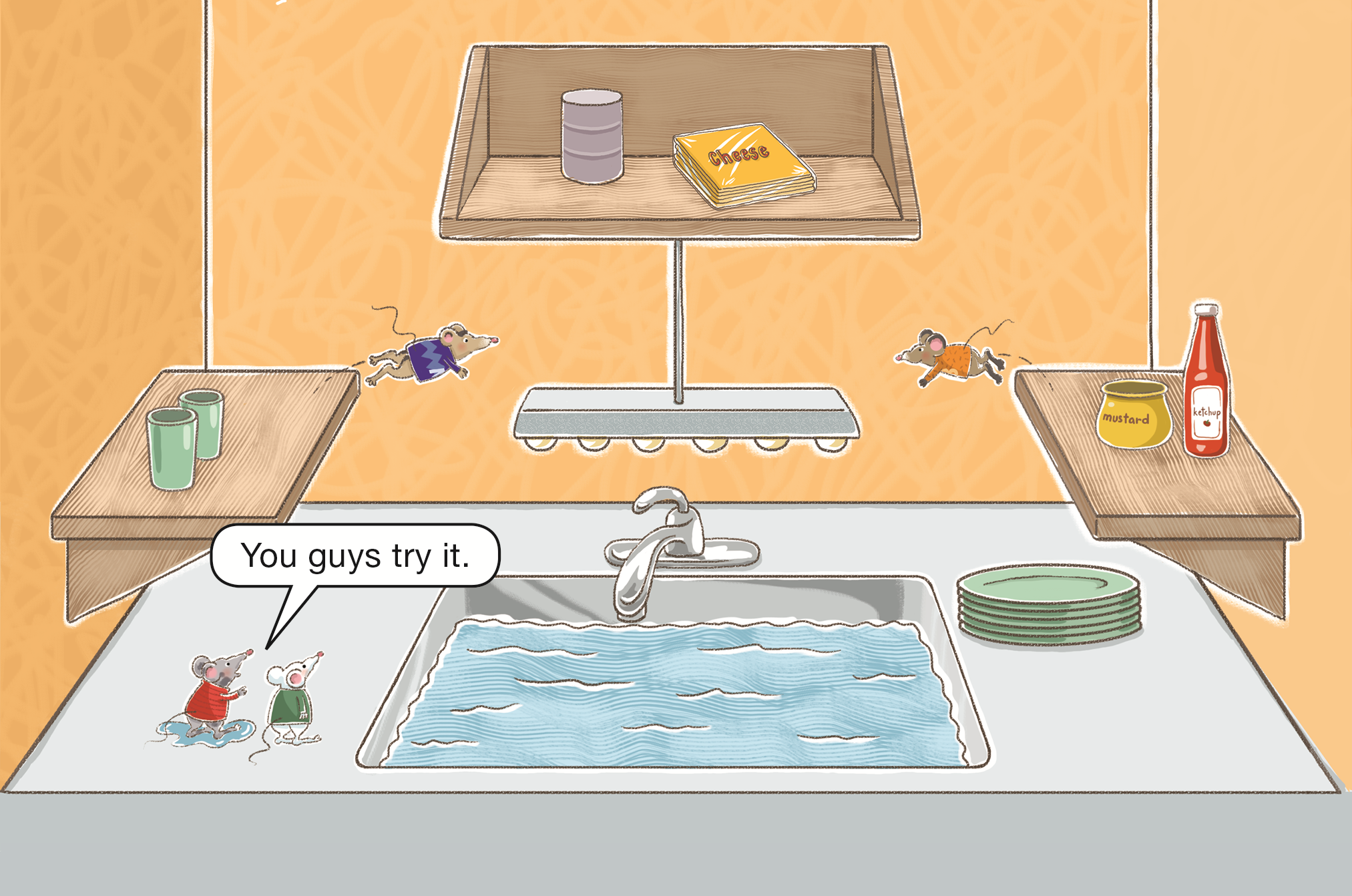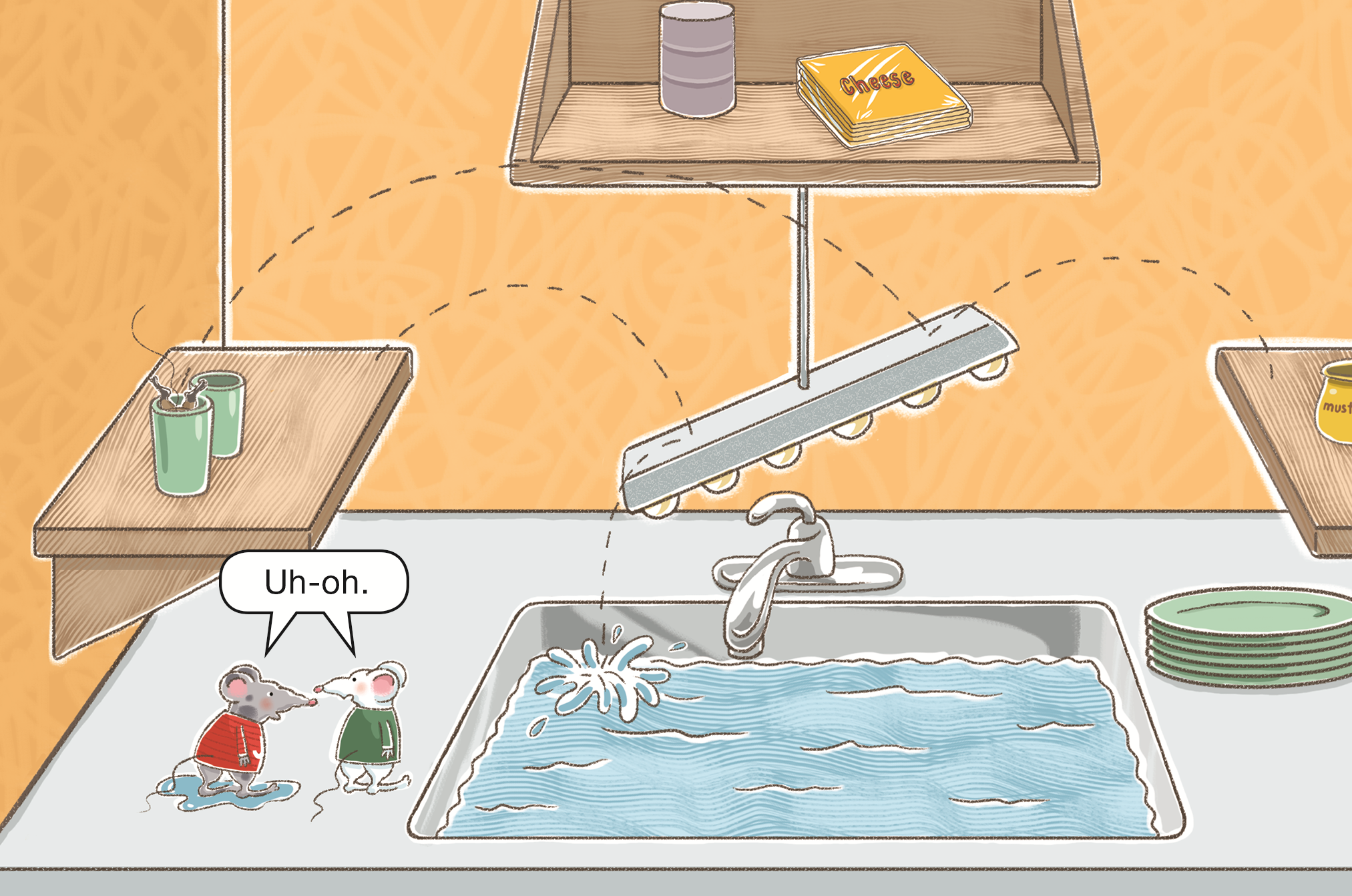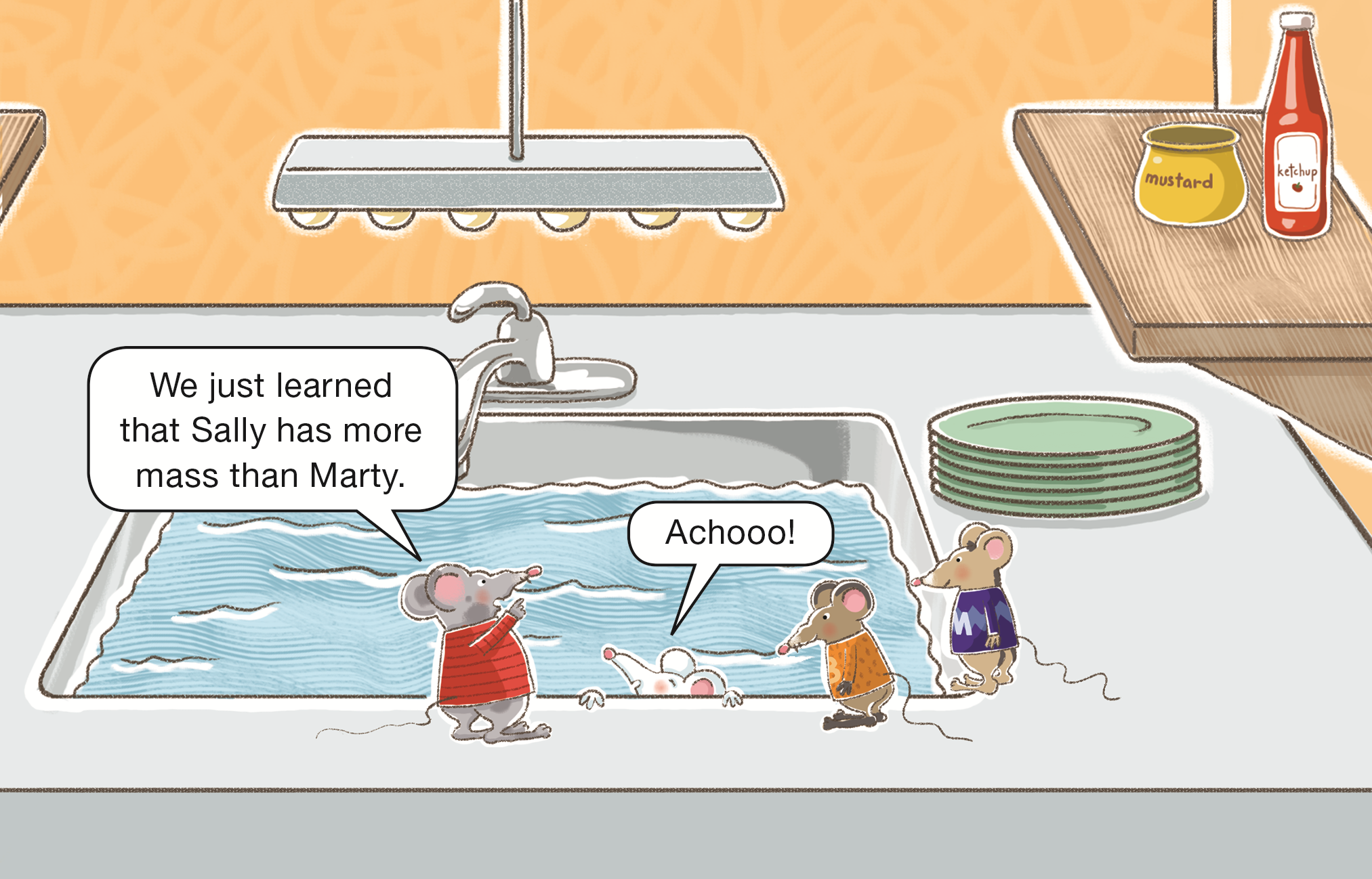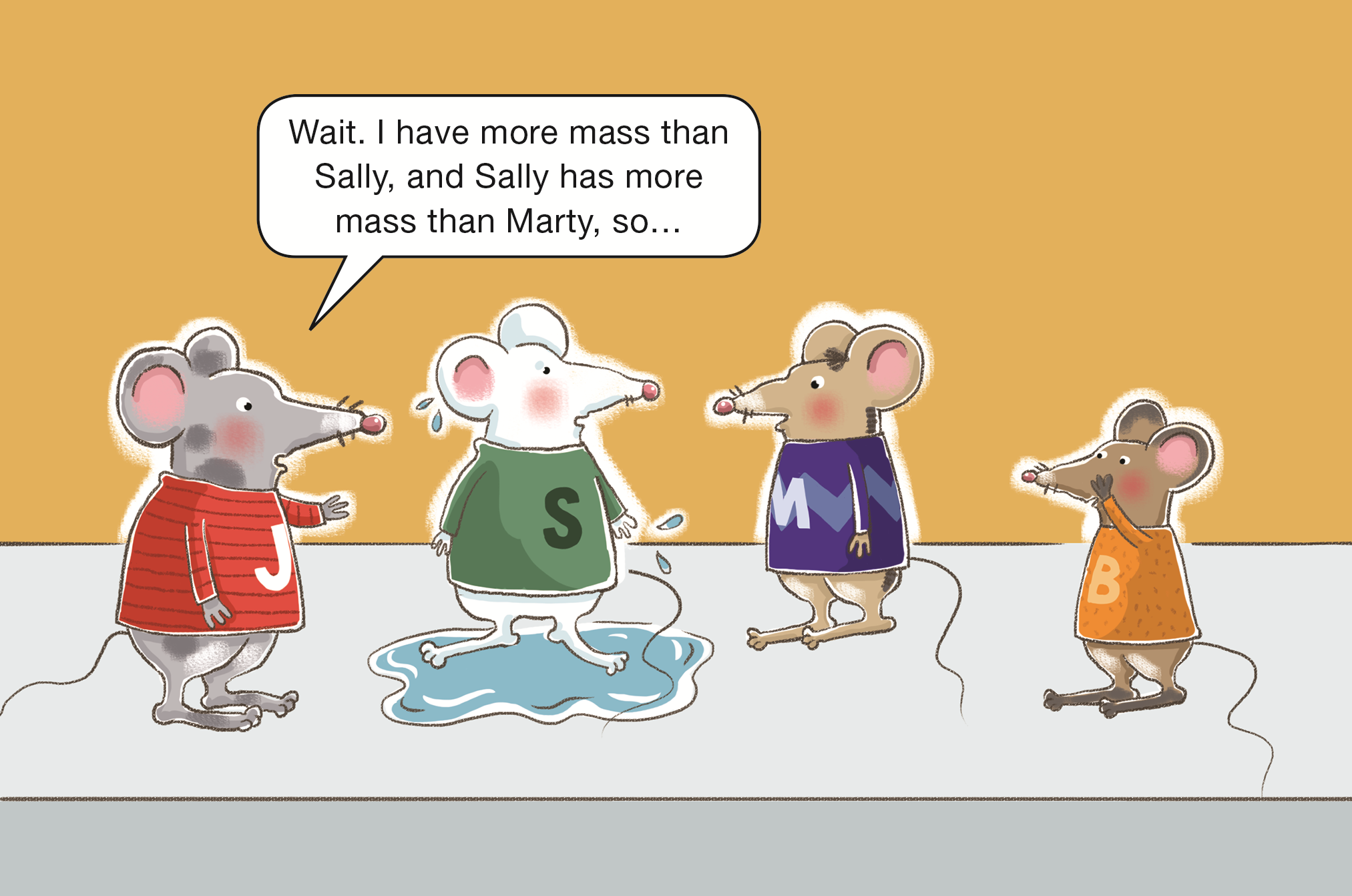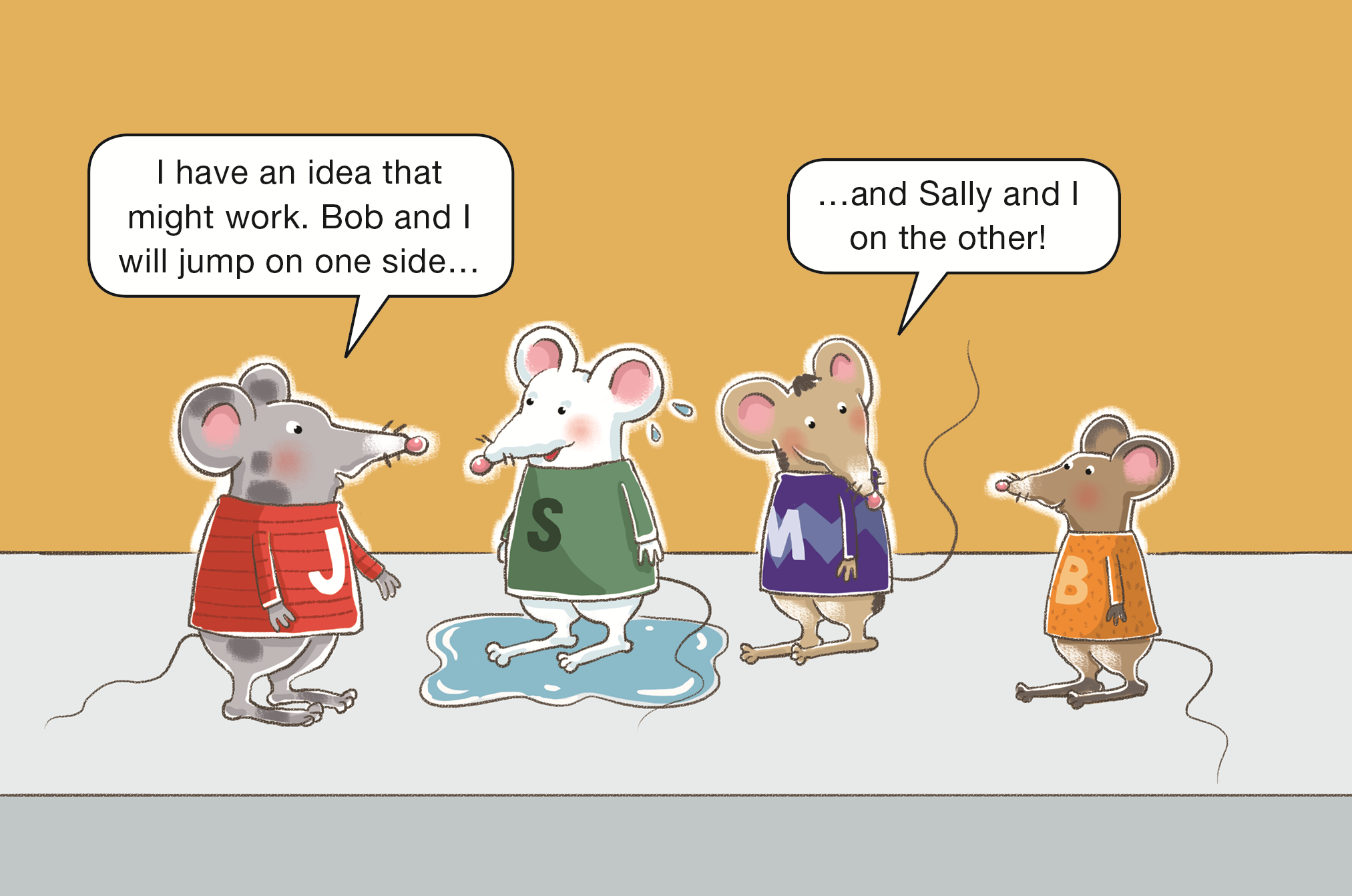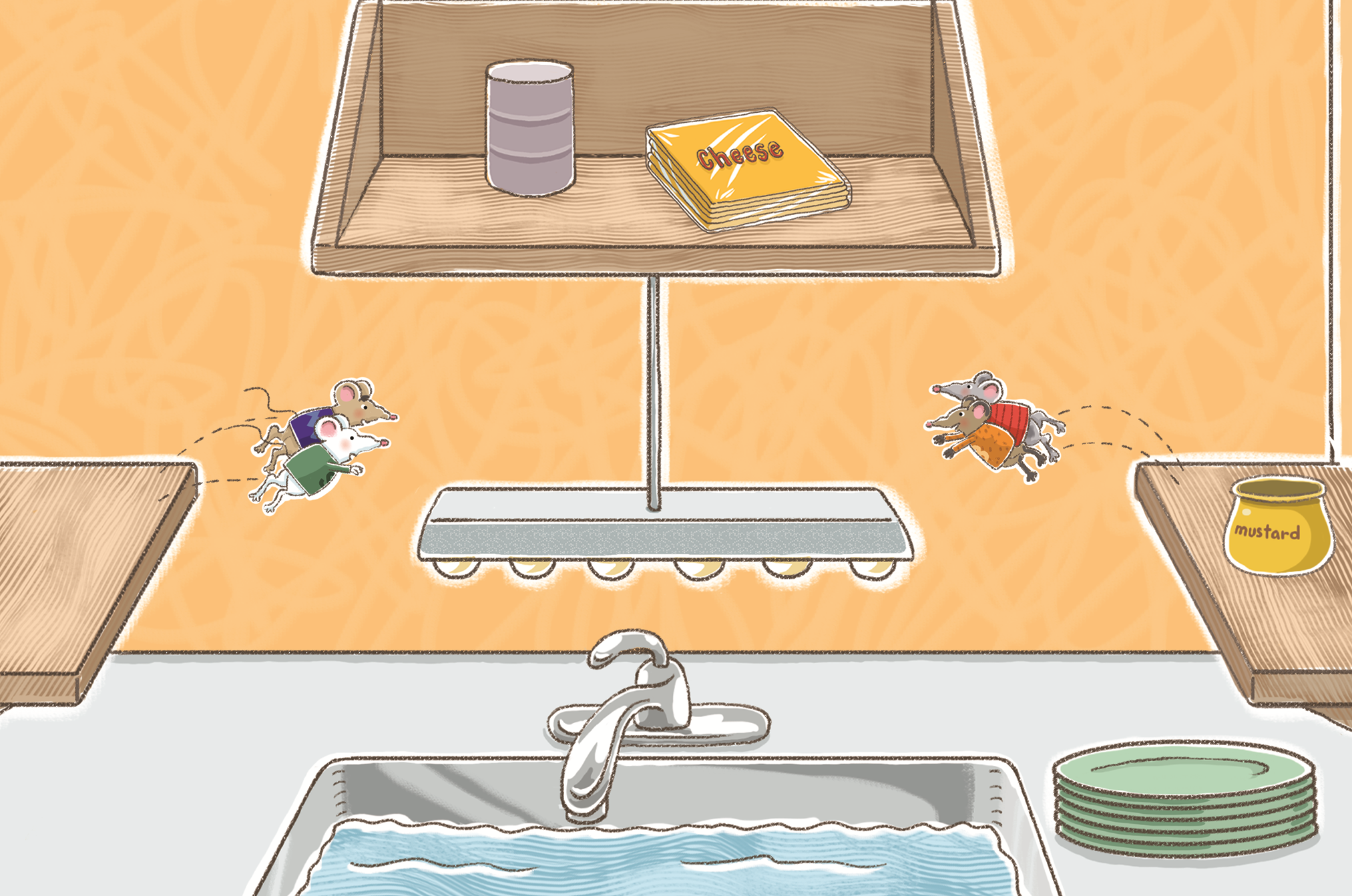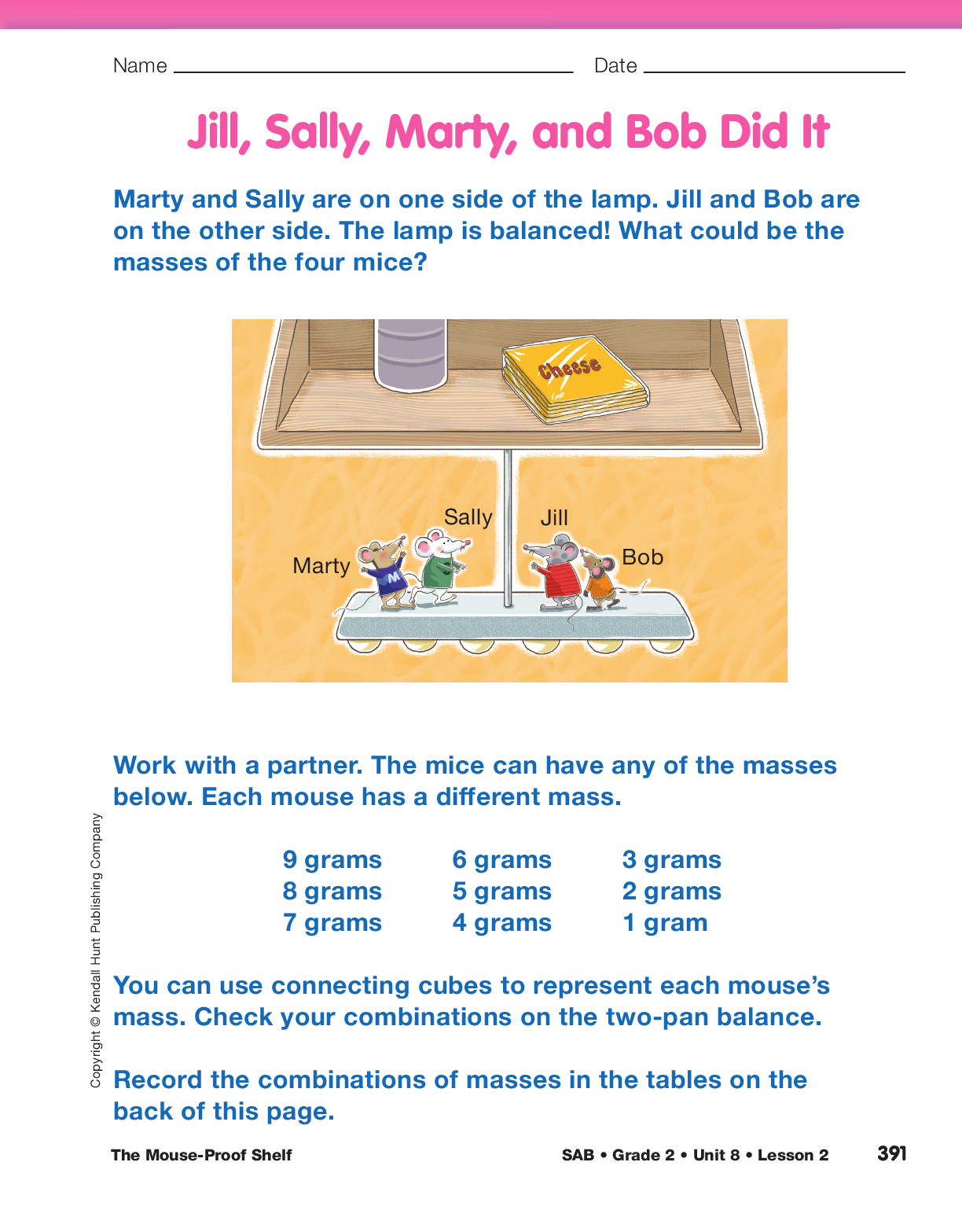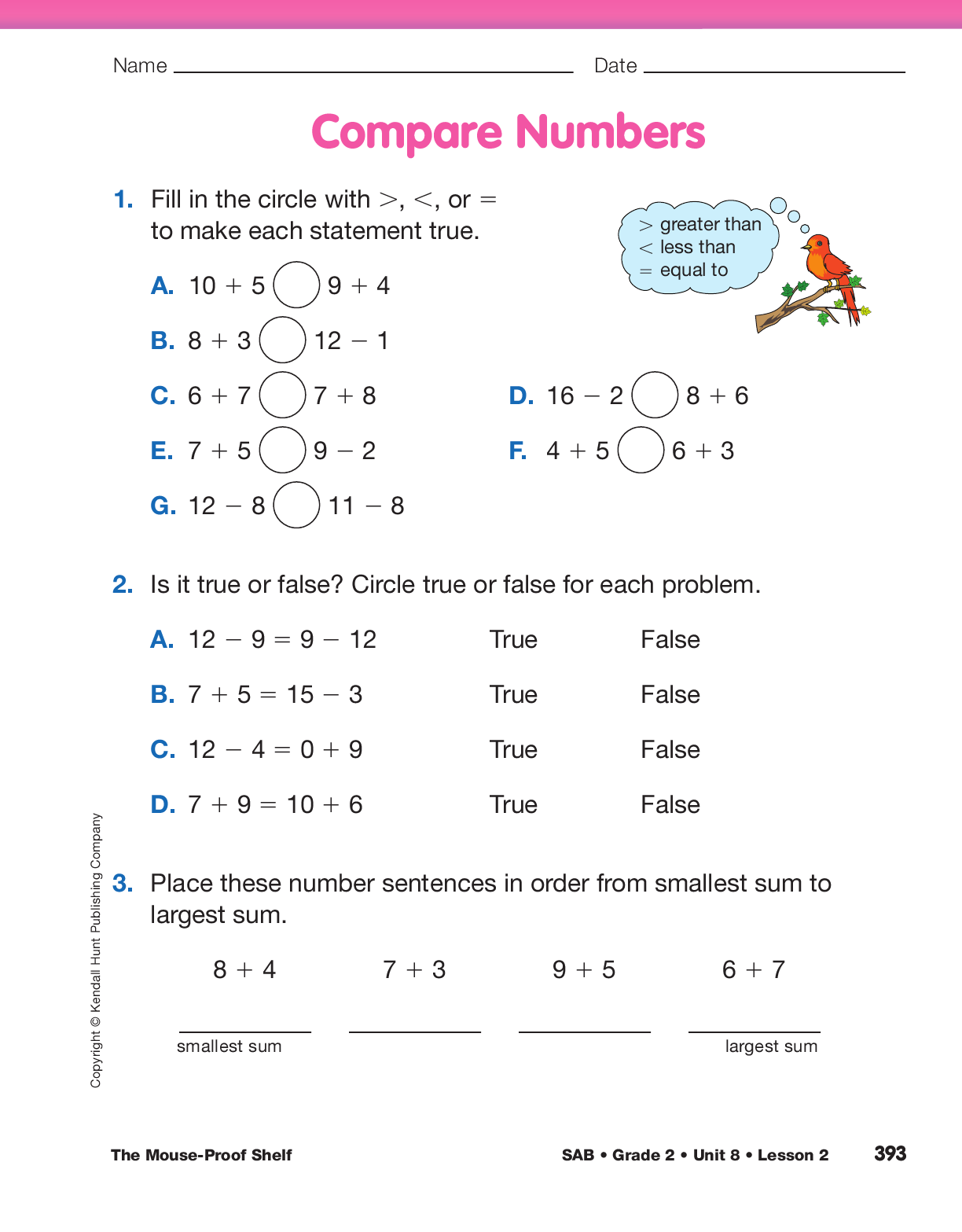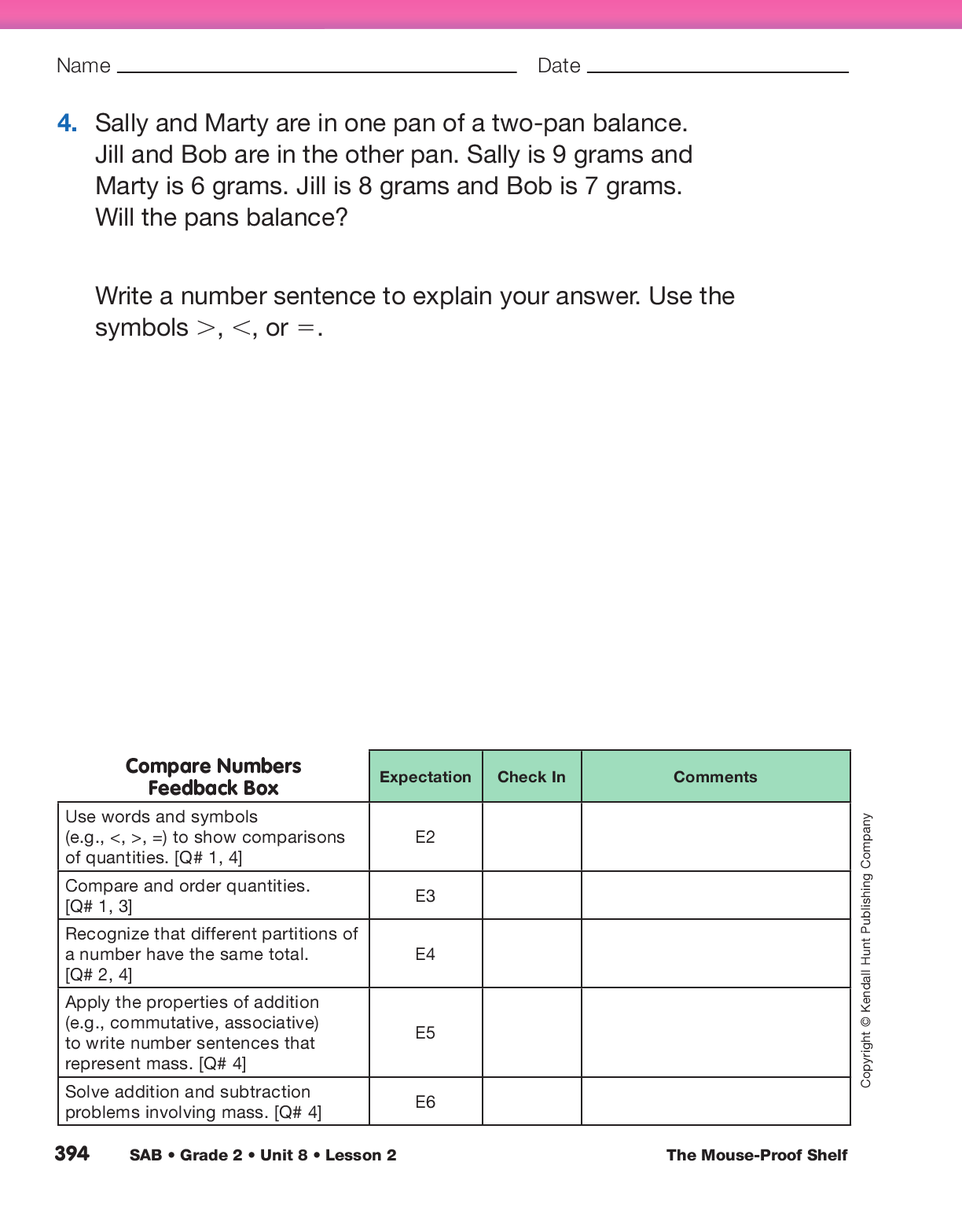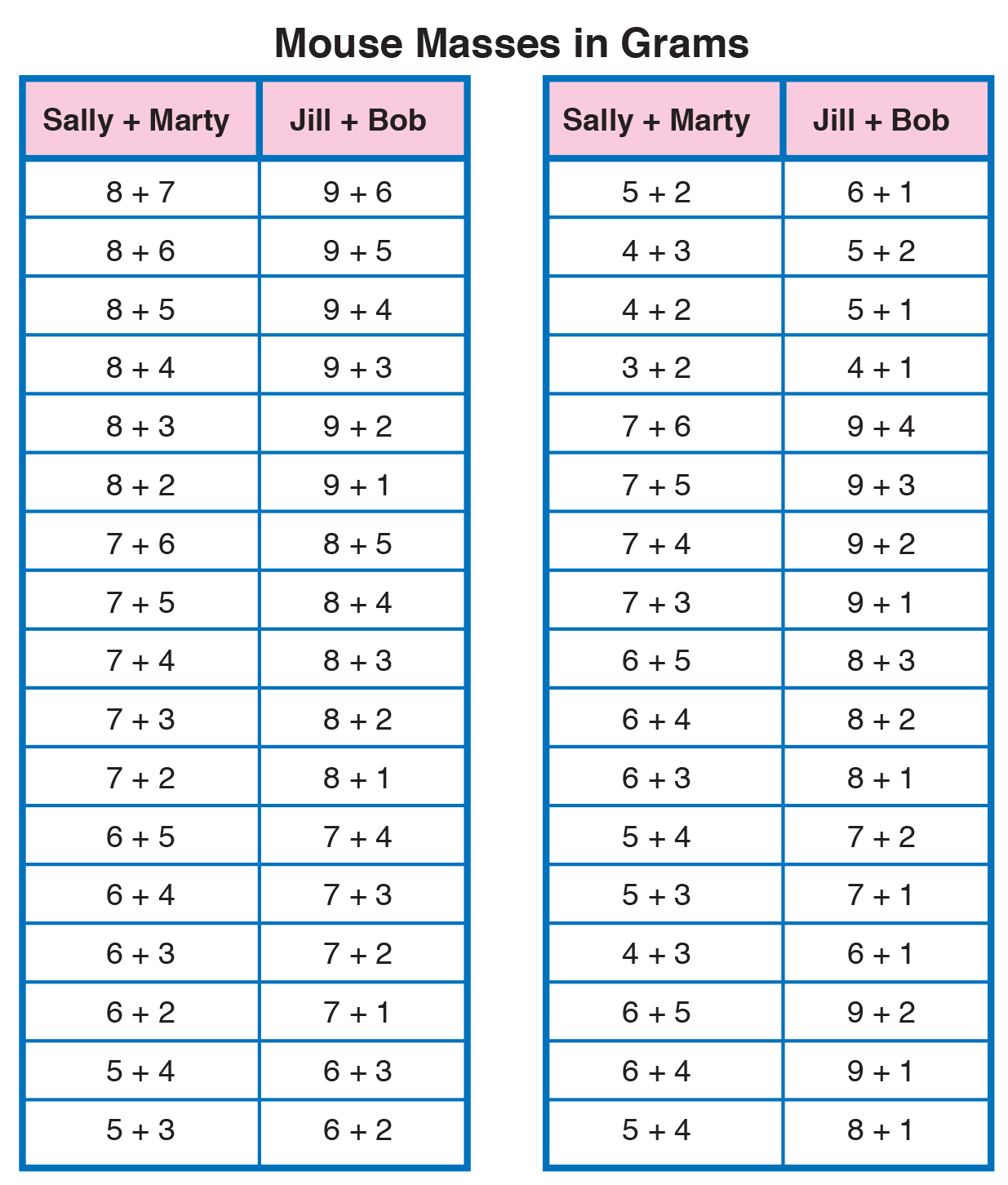Read The Mouse-Proof Shelf.
Use the display of
characters you created prior to the lesson to introduce
the four main mice characters in the story. See
Materials Preparation. As you read aloud, use the
following discussion prompts to discuss the story.
Page 2
-
How is the lamp similar to a two-pan balance? (They
both have something in the middle that holds
them up but nothing at the two sides. Both the
lamp and the horizontal stick of a two-pan balance
tilt, so both can be used to compare mass.)
Page 8
- Compare Jill’s mass to Sally’s mass based on what happens when they jump on the lamp.
- Who has more mass?
- Why do you think so? (Jill has more mass than Sally. When they both landed on the lamp, the side that Jill was on went down.)
Pages 9–10
- Do you think Jill’s plan to switch sides is a good
idea? Use what you know about their masses to
explain your answer. (Jill’s plan will not succeed.
The lamp will still tilt because the mice’s masses
are different. Jill will still make her side tilt down
because she has more mass.)
Page 14
- Compare Marty’s mass to Bob’s mass based on
what happens when they jump on the lamp.
(Marty has more mass than Bob because the
lamp tilts down on Marty’s side.)
Pages 19–20
- Why do the mice know that Sally’s mass is greater
than Marty’s? (The lamp tilts down on Sally’s
side and spills her into the sink.)
- Can you order the masses of the mice from
greatest to least? (Jill, Sally, Marty, and Bob)
- Who has the most mass? (Jill)
- Who has the least? (Bob)
Pages 21–22
- Why did the mice choose Jill and Bob for one team and Sally and Marty for the other team?
- Why did they think those two teams would balance each other? (Jill, who has the most mass,
is coupled with Bob, who has the least mass. This pair may balance the team of Sally and Marty,
since they are ranked second and third, respectively, in mass order.)
Addition Combinations. After discussing the story,
display the first page of the Jill, Sally, Marty, and
Bob Did It pages from the Student Activity Book and
introduce the task. Student pairs are to find possible
combinations of mass that will balance the lamp.
Provide access to connecting cubes and two-pan balances.
There will be multiple answers for the problem
presented on the page. For example, one
possible combination is mice with masses of
5 grams + 4 grams on one side and 8 grams
+ 1 gram on the other side of the lamp. Note that the
masses of the mice are not realistic. Encourage students
to find as many solutions as they can.
- Does 5 + 4 = 8 + 1? (yes)
- Imagine that Marty was 5 grams and Sally was
4 grams on one side of the lamp. Now imagine that
Jill was 8 grams and Bob was 1 gram on the other
side of the lamp. Would the lamp balance? (yes)
- Who would like to show that using connecting
cubes and a two-pan balance? (5 cubes + 4 cubes
in one pan should balance 8 cubes + 1 cube in
the other pan.)
- How many combinations can you and your partner
find for Jill and Bob to balance Sally and Marty on
the lamp?
Upon completion, display the Mouse Masses in
Grams table from the Jill, Sandy, Marty, and Bob
Did It pages. Discuss students’ solutions. See Figure
1 for the 34 possible solutions.
Compare Numbers. Assign the Compare Numbers
pages in the Student Activity Book to assess students’
abilities to compare number sentences and recognize
that the equal sign represents the relationship
between two equal quantities.
Use the Compare Numbers pages and the Feedback Box in
the Student Activity Book to assess students’ abilities to use
words and symbols (e.g., <, >, =) to show comparisons of
quantities [E2]; compare and order quantities [E3]; recognize that different partitions of a number have the same
total [E4]; write number sentences that represent mass [E5];
and solve addition and subtraction problems involving
mass [E6].














